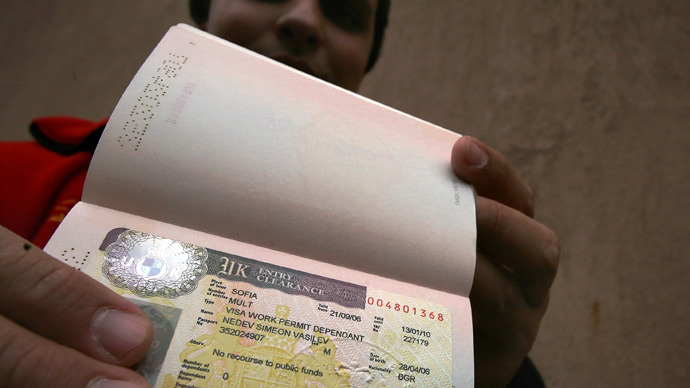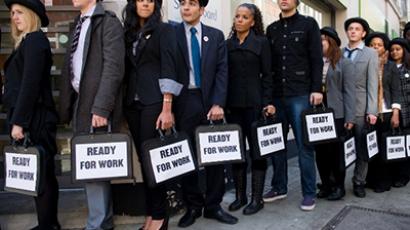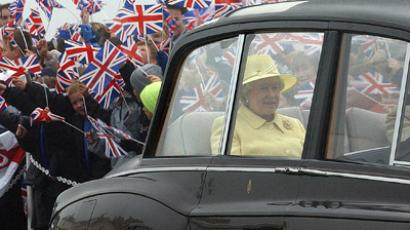Fee to enter? Britain’s immigration crackdown continues

Immigrants entering Britain may be forced to pay a fee, which would only be reimbursed when they leave UK soil, and if they haven’t used health services. The UK is taking an increasingly hardline stance, despite a recent sharp decline in immigration.
The UK is seeking to impose financial bonds “as a further
deterrent to reduce non-compliance by high-risk nationalities,”
a source close to Theresa May, the Home Secretary, told the Daily
Mail. Additionally, migrant family members already residing in the
country would be made to pay a sum of thousands of pounds. It would
be returned upon leaving the country.
If the reform goes through, immigrants entering the country for
living and work purposes would have to put down the money to
guarantee they wouldn’t ‘drain’ the country’s financial resources.
Such resources would include things like non-emergency care from
the health service. However, if British welfare was used by
migrants entering the country, they would risk losing their
money.
The entry fee would additionally be used to make sure immigrants didn’t outstay their visa (and fining them if they do), consolidating an existing act. The Immigration and Asylum Act (1999), already gives the government the right to make immigrants front some money upon entering the country, which can be retained by the government should they remain in the UK after the expiration of their visa.
Individuals from two or three countries were tagged as “high
risk”, and it is at them that the scheme is targeted. The UK
will not be allowed to impose the charge on immigrants from EU
countries who comprise the EU’s Schengen passport-free zone.
Bulgaria and Romania had hoped to gain the same freedom to enter
the UK as other EU nations, and were expected to apply to join the
zone in a meeting on Thursday. However, their entrance needed to be
granted through a unanimous vote, and Germany announced their plan
to veto the move on Monday.
“There will be no vote, and no decision,” a source in the
EU's current Irish presidency told AFP on Wednesday. “Several
nations have reserves or concerns.” As a result, residents of
the two countries could be among those impacted.
Net migration into Britain has fallen by a third, from 247,000
thousand migrants in June 2011 to 163,000 in 2012, according the
Office for National Statistics (ONS).
Conservatives said they would clamp down on migrants, saying they
were taking advantage of Britain's “soft touch,” which he was
determined to quash.
On Wednesday, the Labour party leader Ed Miliband promised to take
a heavy hand with immigration. He stated that the party had got it
wrong in the past, saying “millions of people are
concerned.”
“Low-skill migration has been too high and we need to bring it
down,” he said.
The Shadow Home Secretary Yvette Cooper called for the closure of
student visa loopholes on Thursday, saying that many overstay or
abuse (e.g. working instead of studying), despite the party denying
accusations that they are moving to the right on migration.
The British Conservative party was shunted into third place in the
Eastleigh by-election in February. The UKIP candidate, who beat the
Conservatives, is a member of a party described by the Tory
government as packed with “loonies and closet racists.”
It has been suggested that parties are adopting a stronger stance
because of UKIP’s reputation for being heavy-handed on
immigration.
Labour MP Diane Abbot, issued a recent warning to her party not to
“spiral downwards” by veering to the right on immigration as
a result of the by-election results.














